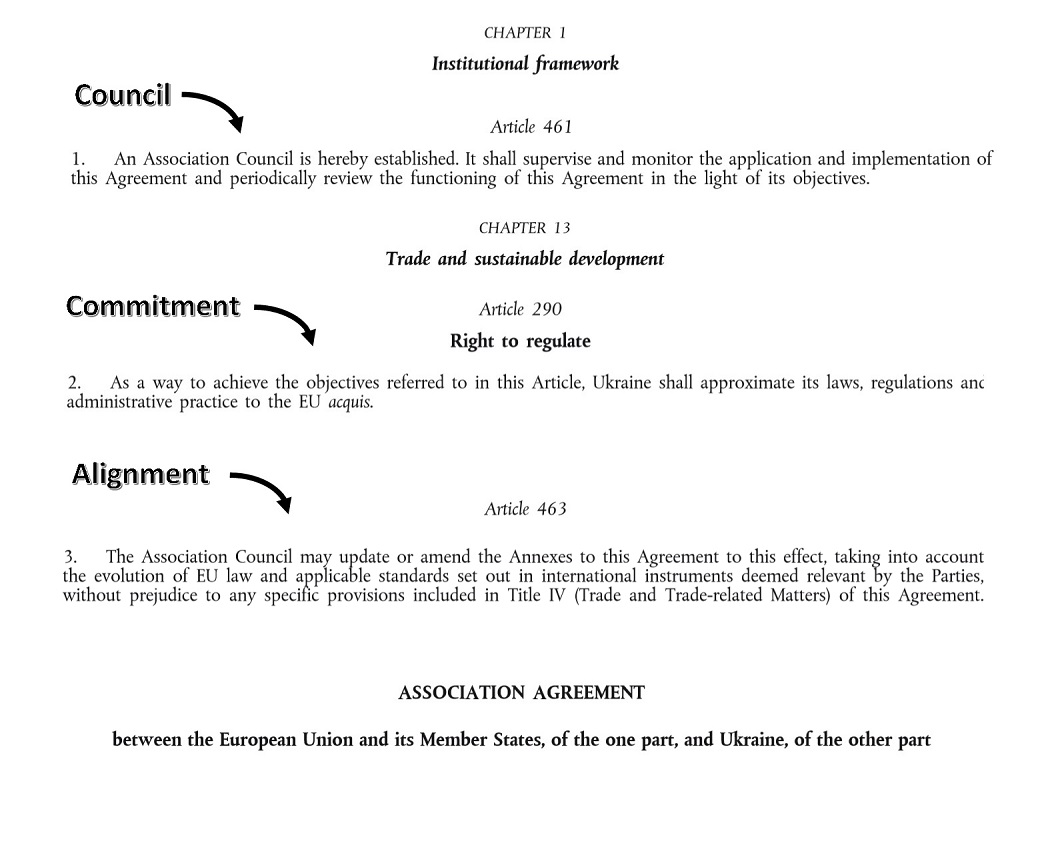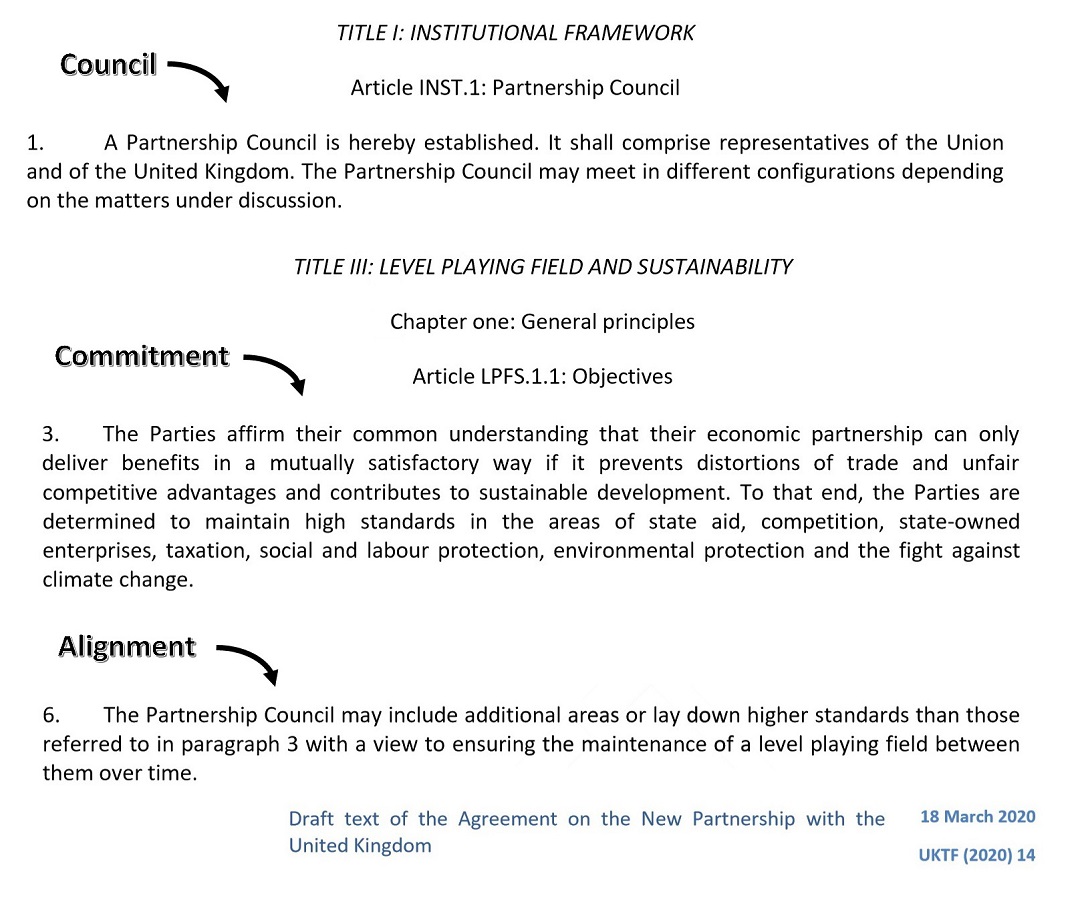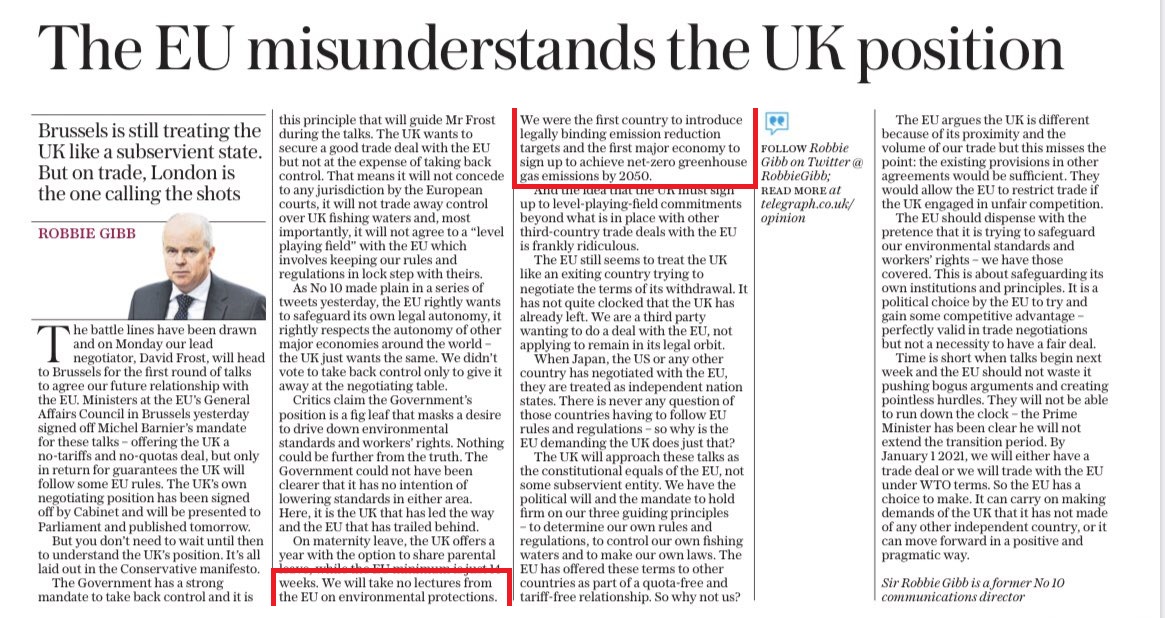1. Massive kudos to @Peston for the best coverage of the LPF problem to date by a British journalist, and although Robert concludes that it will be difficult to conclude a deal, I think I can see a way through. https://twitter.com/Peston/status/1336633624825827330
2. Firstly, the EU has been upfront about wanting this in a future free trade agreement since the beginning of 2017.
3. We also knew how the EU do this, the Ukraine deal has this same mechanism and was drafted in 2012.
4. And the UK have known that this was practically identical to that deal when it dropped into the public on the 18th March this year.
5. But instead of addressing the detail and the substance of the thing we’ve expected for 3 years, we had Robbie Gibb shouting “Sovereignty!” and going on about how our standards are world beating.
6. This is important because LPF are based on baseline standards, and therefore, to be faced with these problems, we would be refusing standards lower than say Croatia, or Romania, had accepted.
7. It’s almost hypothetical, but unfortunately, the problem with almost hypotheticals is they have a terrible habit of become almighty pains in the arse.
8. There is a theoretical circumstance in which we refuse to update our standards and the EU’s response is disproportionate to the standards disparity that is created.
9. There is no universal Standards to Tariff scale, there is no mathematical certainty. It's possible they will overcompensate or undercompensate.
10. Can we solve this before the end of year? Probably not, but it doesn’t need to be solved to do this deal.
11. Free Trade Deals have future proofing in them.
12. They have frameworks designed for increasing cooperation.
13. They have review dates where they agree circumstances may change. The EU-Japan deal for example has a date where they can agree to speed up their transition period.
14. If the EU and the UK could agree in principle that this was a problem and they both intend to find a solution, the trade deal could be future proofed.
15. And because there are baseline standards, and because we’re the 6th biggest economy with “world leading” standards, this does not need to be agreed today.
16. If there is a business certainty issue, there is time to resolve it.
17. We can do the deal and future proof it so that any problems can be resolved, or preferably evolved.
18. Leaving the question of trust, because it’s actually important. https://twitter.com/DavidHenigUK/status/1336682663281897476
19. And here is the clever bit, while we’re on the deal and committing to resolve the issue, we can avoid no deal while writing in that we may fail and want to quit with irreconcilable differences. https://twitter.com/EvanHD/status/1336677974695948297
20. But that ‘No deal’ isn’t the same as No deal in January. We’re about to jump down 5 stairs and it is going to hurt.
21. In the scenario we don’t jump down 6 steps, we jump down 5 and then, if necessary, we jump down 1.
22. And we will be out of the WA, and if we decide we can’t resolve this, there will be less political pressure as to the means and methods we can adopt for a soft landing for both sides.
/End
/End

 Read on Twitter
Read on Twitter



